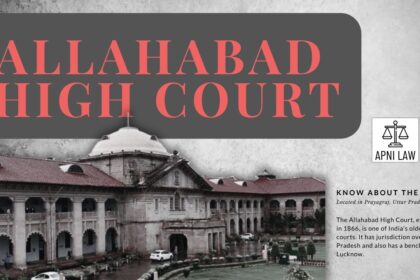This article is written by Atishay Jain, a former UPSC aspirant and a core member of the ApniLaw team. With a strong focus on criminal and regulatory law, the article offers clear insights into complex legislations like the Narcotic Drugs and Psychotropic Substances (NDPS) Act. For any personal queries or suggestions, feel free to reach out to us through our official channel.
Introduction
India enacted the Narcotic Drugs and Psychotropic Substances (NDPS) Act, 1985, to control the production, distribution, and consumption of illegal drugs and psychotropic substances.
Police officers play a vital role under this Act, acting as the frontline defenders in identifying, investigating, and preventing drug-related crimes. Their efforts are crucial in curbing the growing threat of addiction and drug trafficking.
What Is Section 67 Of NDPS Act?
Section 67 of the Narcotic Drugs and Psychotropic Substances Act, 1985 empowers certain officers to gather information. This provision allows them to check if there’s a violation of the Act.
- Call for Information: Officers can ask any person for relevant information.
- Demand Documents or Items: Officers can require documents or items related to the enquiry.
- Examine Individuals: Officers can question anyone familiar with the facts.
These powers help officers conduct a preliminary enquiry. They use this to decide if a formal investigation should begin.
Confessional Statements Under Section 67: Are They Admissible?
- The Supreme Court has ruled that confessional statements under Section 67 are not valid evidence. This was clearly stated in the case Tofan Singh v. State of Tamil Nadu.
- In Firdoskhan Khurshidkhan v. State of Gujarat (2024), the court rejected the use of a Section 67 confession to convict an accused.
- In Ajay Kumar Gupta v. Union of India (2024), the court said Section 67 statements are inadmissible as confessions.
What Is The Supreme Court Ruling on Ajay Kumar Gupta v. Union of India
- In this case, authorities accused Ajay Kumar Gupta, a licensed medical shop owner, of supplying pentazocine, a psychotropic substance that he allegedly transported illegally by train.
- The prosecution’s case heavily relied on Gupta’s statement recorded under Section 67 of the NDPS Act.
- The Supreme Court, referencing the precedent set in Tofan Singh v. State of Tamil Nadu (2021), held that
Statements recorded under Section 67 of the NDPS Act are inadmissible as confessional evidence. - Such statements cannot be the sole basis for conviction under the NDPS Act.
- The Court noted that there was no independent evidence linking Gupta to the transportation of the contraband.
- The consignment was booked by another accused, and there was no proof of Gupta’s involvement in a criminal conspiracy.
- The Supreme Court set aside Gupta’s conviction under Sections 22(c) and 29 of the NDPS Act, emphasizing the inadmissibility of his Section 67 statement and the lack of corroborative evidence.
- The ruling reinforces that courts cannot use confessional statements made to NDPS officers under Section 67 of the NDPS Act as evidence, since the law deems these officers as “police officers” under Section 25 of the Evidence Act.
Conclusion
The NDPS Act empowers law enforcement agencies to take strict action against drug offenders, reflecting the seriousness of the threat posed by narcotic and psychotropic substances. With increasing cases of substance abuse affecting individuals and society, the role of police officers remains indispensable in safeguarding communities and ensuring effective implementation of the law.








